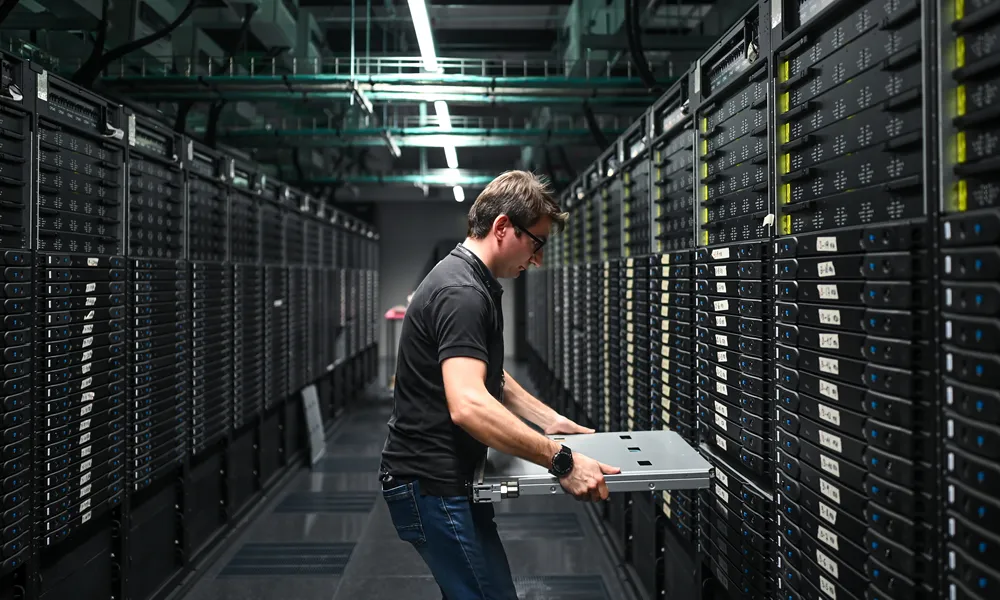Europe has reached a new milestone with the launch of its first exascale supercomputer ‘JUPITER’, boasting computing power comparable to that of one million modern smartphones.
The new supercomputer will allow researchers to run climate and weather models at kilometre‑scale resolution, enabling much more precise forecasts of extreme events such as heatwaves, heavy storms, and floods.
Inaugurated by EU Commissioner Ekaterina Zaharieva and German Chancellor Friedrich Merz in Germany, JUPITER has officially become the first European system to achieve the exascale threshold – that is, performing more than one quintillion (10¹⁸) operations per second. With this milestone, Europe enters the global league of high‑performance computing.
Europe’s most powerful supercomputer
Officially ranked as Europe's most powerful supercomputer and the fourth fastest worldwide, the system runs entirely on renewable energy and features cutting-edge cooling and energy reuse, making it the world's most energy-efficient supercomputer module, as confirmed by its number‑one position on the Green500 ranking.
“JUPITER strengthens Europe’s digital sovereignty, accelerates discovery, and ensures that the most powerful and sustainable computing resources are available to our researchers, innovators, and industries,” said Zaharieva, EU Commissioner for Startups, Research and Innovation.
According to a Commission press release, JUPITER will support the development and deployment of AI solutions, including training cutting-edge large language models (LLMs) for generative AI and next‑generation digital technologies.
JUPITER represents a €500 million joint investment by the EU and Germany. It is part of Europe's wider strategy to develop a network of AI Gigafactories: large-scale, energy‑efficient computing hubs dedicated to training and deploying frontier AI models.
Bringing start-ups, data and talent together
Meanwhile, the EU has already selected 13 proposals to establish and operate AI Factories across Europe, including Greece, that will provide access to the massive computing power that start-ups, industry and researchers need to develop their AI models and systems.
An EU initiative announced by European Commission President Ursula von der Leyen earlier this year, aims to mobilise up to €200 billion of European investments in AI, including the deployment of several AI Gigafactories across Europe.
“This is a historic milestone. Just as the planet Jupiter has a gravitational pull that shapes our solar system, the JUPITER supercomputer will pull Europe’s research community, its start-ups, its industry, and its talent together. It will attract investment, stimulate breakthrough, pushing Europe forward,” said Henna Virkkunen, Executive Vice-President for Tech Sovereignty, Security and Democracy.
